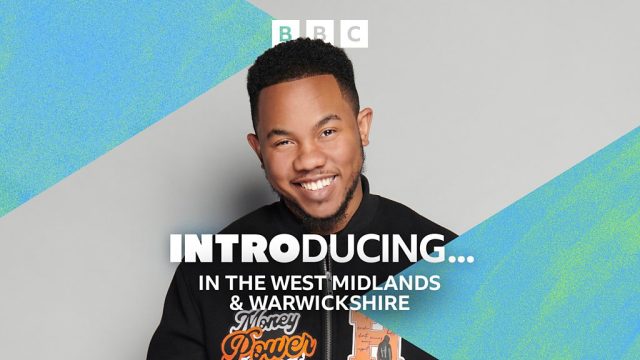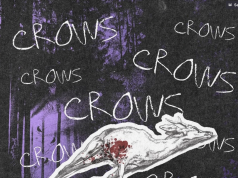Has BBC Music Introducing just betrayed independent artists by actively choosing to champion AI Music?
Introducing BBC Music Introducing
BBC Music Introducing was officially launched in June 2007. It was created to connect local talent with their national radio stations (Radio 1, Radio 2 and 6 Music) and major live events.
The mission was simple. To support unsigned, undiscovered, and under the radar UK music talent by providing them a direct route to get their music heard on the BBC and beyond, without the need for a manager, record label or crucially a radio plugger.
How It Works
Artists and bands upload their music via the BBC Introducing Uploader. When registering, artists enter their postcode, which ensures their music is directed to the closest BBC local radio station.
The platform is built on a network of over 30 BBC local radio shows across England, the Channel Islands, Wales, Scotland, and Northern Ireland (e.g., BBC Introducing in Manchester, BBC Introducing in the North East).
Dedicated producers and presenters for each local show listen to the tracks submitted from their region. If they like a song, they will give it airplay on their local show, championing the local music scene.
If a local team believes a track or artist is exceptional, they can “forward” it to the national BBC radio stations. The music is then considered for airplay on the flagship national stations, including: BBC Radio 1, BBC Radio 1Xtra, BBC Radio 2, BBC Radio 6 Music, BBC Radio 3 and BBC Asian Network
Being championed by Introducing can also lead to major live opportunities, including coveted slots on the BBC Music Introducing Stage at huge UK festivals like Glastonbury, Reading and Leeds Festival, Latitude
Key Success Stories
BBC Introducing has always been celebrated as the vital first step, a rite of passage for unsigned and independent artists. After all, nothing beats the thrill of hearing your music on the radio and earning a respected endorsement for your next press release.
The programme claims to have played a vital role in launching the careers of some of the UK’s biggest stars, including Ed Sheeran, who played the Introducing Stage at Glastonbury in 2011, Florence and the Machine, George Ezra, Ellie Goulding, Two Door Cinema Club, Jake Bugg and Little Simz.
BBC Introducing has grown dramatically, and now boasts over 190,000 registered artists and nearly a million tracks uploaded. According to the BBC, it remains their commitment to breaking new talent.
What Went Wrong?
On the 6th of November, BBC Music Introducing West Midlands featured Papi Lamour on their show in a pre-recorded interview with DJ Theo Johnson. During the interview, Papi openly admits that he makes his music with AI. Rather than being shocked or embarrassed by this revelation, Johnson laughs and appears to celebrate this admission.
“And now I’m finding out it was AI that created it, that’s like a first, and on radio, I’ve never interviewed anyone who said basically, this is just AI.”
Let’s be clear, this wasn’t a mistake or an oversight; this was a pre-recorded interview. BBC Introducing West Midlands actively chose to champion music created with AI over genuine human talent. In a region where talent includes Miriam, Lahlia Cole and MollyXO, the decision to support AI music is laughable.
Mollyxo, A BBC Introducing West Midlands artist.
Mollyxo took to TikTok to voice her frustration over the situation.
@coolerthanmangos The guy has 11 followers and one of them is Theo Johnson- the host of the show, bit convenient that?? I’ve complained formally to them and waiting to hear back #bbcintroducing #bbcradio #bbcintroducingwm #aimusic #independentartist ♬ original sound – mollyxo
What’s The Problem?
AI Music production is only possible because the AI agents have been trained on music created by human artists without their permission. While the major record labels assemble their legal teams to claim a compensation fee for this gross copyright infringement, unsigned, independent artists have no such legal team in their corner. And if they thought the BBC were fighting their corner, they are clearly mistaken
The record labels claim Suno and Udio have committed copyright infringement on an “almost unimaginable scale” using AI software trained on their music catalogues to create new tracks without seeking prior permission.
We caught up with BBC West Midlands’ artist Mollyxo to get her thoughts.
“When I first heard the interview, I was shocked. It was so disappointing to hear that an AI song was getting space on a platform reserved for real human independent artists. I do not believe AI has any purpose in creative spaces. The reason music is so impactful is because it connects us through common experience and emotion, something AI can never replicate. Listen to any AI song, whilst it might be technically perfect, it lacks the most crucial thing music needs: humans. AI is fed humans’ work (often without their consent on an ‘opt out’ basis), and all it does is regurgitate other people’s work and voices. You are not creating anything new when you use AI.” Mollyxo
“Each track is considered based on its musical merit and whether it is right for our target audience, with decisions made on a case-by-case basis”. They add that it is still early stages with AI/music projects and they are keeping a close eye on developments and their priority is supporting the UK music industry, and we are focused on new music and new artists for our audience. They also say “We would always make it clear to listeners if we were playing AI, as in this case where the broadcaster made it clear that AI was involved in the construction of the song.” BBC Introducing.
This is a huge own goal for BBC Introducing and a monumental disappointment for the entire independent music community. It leaves the reputation and credibility of BBC Introducing in tatters.
Discover more on Right Chord Music
- Where It All Began: A New Breed of Music Festival
- Introducing Beat N Track: The Ultimate Free Unsigned Guide
- Unsigned Bands: Should Stop Wasting Money On Radio Pluggers
- Millie Mountain Dreams of Divine With Femi Temowo
Words Mark Knight
Credit to Tune Fountain for the BBC Introducing Response.








